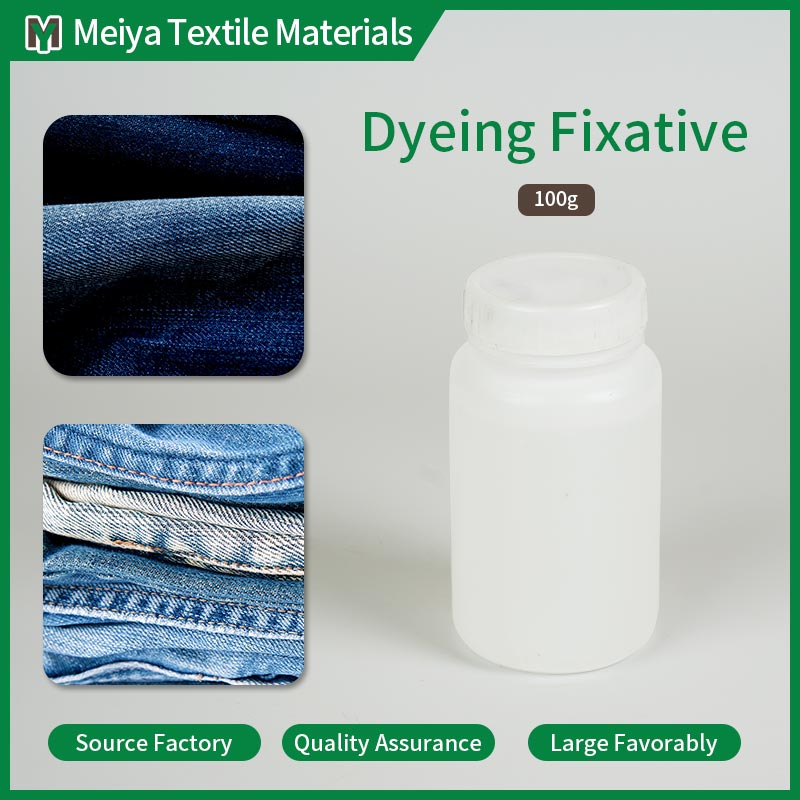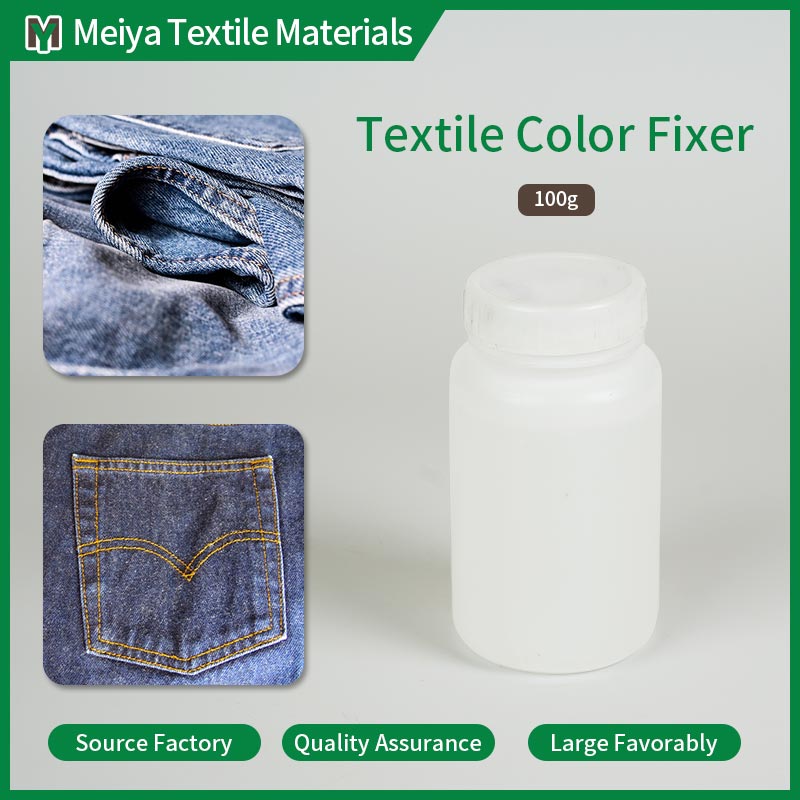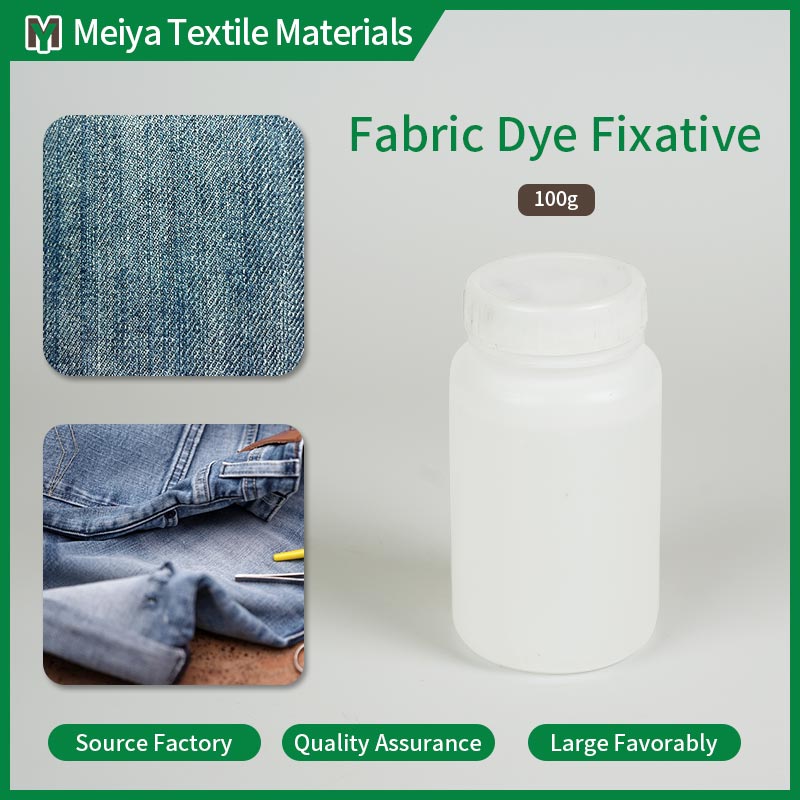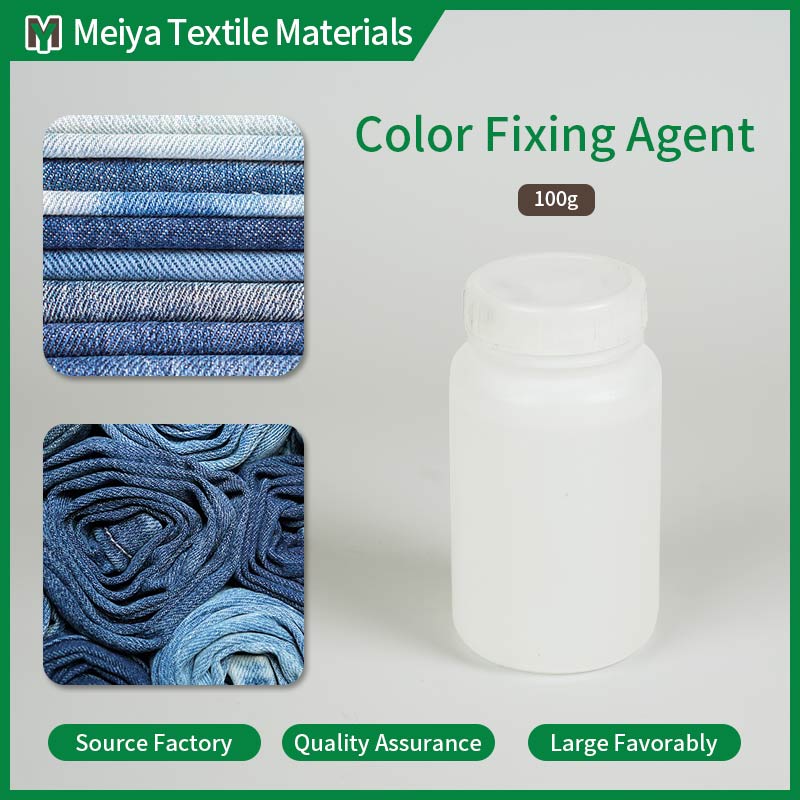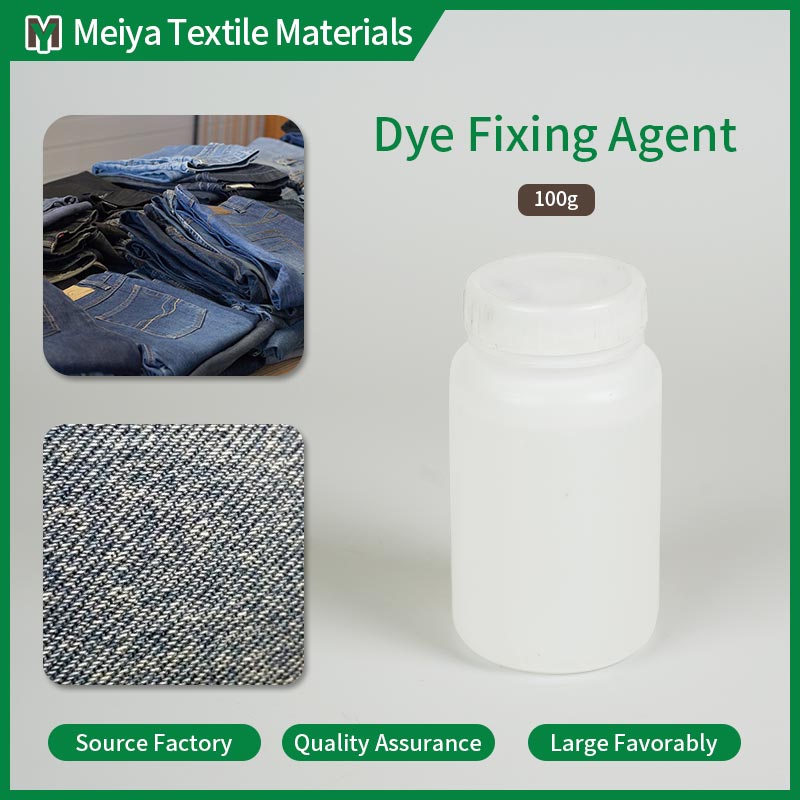Dye Fixing Agent
Please click the button below to contact us.
Introduction:In the textile industry, a dye fixing agent is a chemical compound that improves colorfastness on dyed fabrics. It acts by establishing stable links between dye molecules and fibers thereby preventing fading or bleeding of colors even in subsequent washes or other external causes.
Product Description
Dye Fixing Agent
In the textile industry, a dye fixing agent is a chemical compound that improves colorfastness on dyed fabrics. It acts by establishing stable links between dye molecules and fibers thereby preventing fading or bleeding of colors even in subsequent washes or other external causes. This important addition ensures that colours are maintained for long and remain vibrant on materials through enhancing the general quality and life span of dyed goods. In order to achieve dependable and lasting colour retention, which meets the required standard quality and output during textile manufacturing process, there is need to have a dye-fixing agent, which has the ability to hold dyes tightly onto cloth.
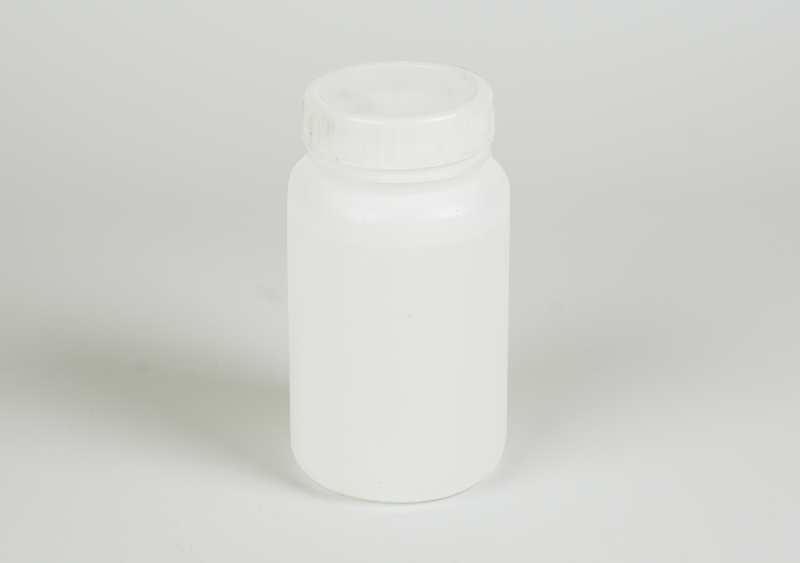
Fabric Color Fixative Features:
1. improvement of colour fastness
Denim fabrics’ colours are significantly improved by dye fixing agents (DFA). Color fading out or bleeding after several washes does not happen due to strong chemical bonds created between dye molecules and fabric by DFA’s.
2. Vibrancy keeping
Denim colors have a long life when these fixing agents are used. This is crucial especially in fashion whereby the look of the denim products contributes greatly to consumer tastes.
3. Strengthened durability
These agents make sure that dye links formed on such garments become stable thus improving their lifetime as whole. It is necessary for jeans which undergo diverse stresses like washing, rubbing and exposure to the environment elements.
4. Consistent Quality Standards:
Dye fixing agents ensure uniform color quality for all batches of denim material. Denim manufacturers need this so as to be able to meet strict quality requirements and produce similar-colored clothes.
5. Eco-friendly Options:
There exist some dye fixing agents that have been made in such a way that they can be termed environmentally friendly; this caters for the rising demand of sustainable practices within fashion sector. They can use products that meet eco-standards without affecting performance.
6. Process Efficiency:
Multiple dye applications or thorough rinsing is made unnecessary by these agents thereby facilitating faster dying process . This saves time and costs in case of denims production.
7.Versatility regarding application:
These dyes can be applied with traditional indigo such as newer techniques involved in dying denim materials; thereby leading its producers into seamless integration with its previous practices
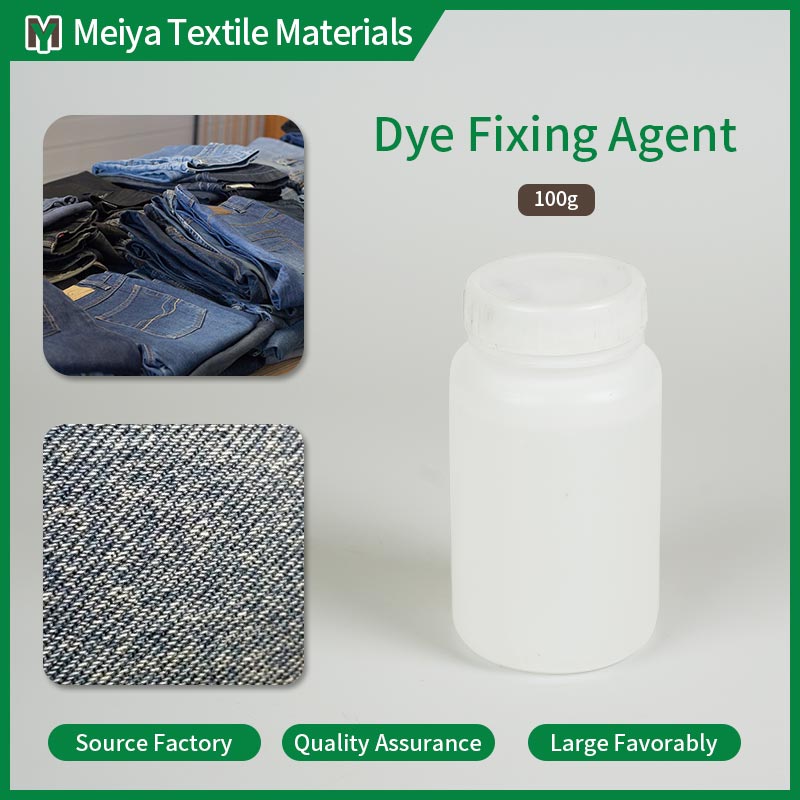
Fabric Color Fixative Application:
1. Textile Industry:
The textile industry is a major user of dye-fixing agents, particularly for dying cotton, polyester, and blends.
These substances help textiles that have been through dying processes to maintain their color concentration as well as prevent them from running or fading when washed again or subjected to any external conditions.
2. Apparel Manufacturing:
Dye fixing agents contribute to the retention of color in garments like jeans, t-shirts, and other colored clothes making them remain vibrant for long without transferring their colors.
3. Home Textiles:
Beddings, curtains and upholstery fabrics can be treated with dye fixing agents in order to retain their visual appeal after repeated washing or exposure to sunlight.
4. Carpet and Rug Industry:
Carpets and rugs can be dyed using dye fixing agents which ensures that the colors do not get dull even after some time especially in areas experiencing high traffic.
5. Footwear Manufacturing:
Using leather or synthetic materials for shoe manufacturing calls for dyes where dyed product will have its color preserved by these chemicals which adds on its general appearance while enhancing its strength.
6. Printed Materials:
In the printing sector where paper or textile is involved, there is use of dye fixing agents for setting up the colour in printed design; this helps maintain sharp images all along.
7. Medical Textiles:
In medical textiles such as uniforms or bed linens found in healthcare settings, these chemicals help keep hygienic conditions while retaining quality colors.
8. Sportswear and Outdoor Gear
For instance jackets, tents among others are made using textiles that require a little help from a dye fixer so as to enable them remain fast even under severe weather conditions.
9. Automotive Interior Fabrics:
Therefore ,for interior fabrics used in vehicles such as seats and upholstery’s ,which are mostly dyed ,are subject to dye fading due to prolonged exposure to sunlight and other environmental factors, however, these problems can be solved by use of dye fixers.
10. Cosmetic and Personal Care Products:
In personal care products and cosmetics where products like hair dyes or dyes that need color stability are used in manufacturing process, a number of producers may opt for the addition of dye fixing agents to ensure colour durability.
Fabric Color Fixative FAQs:
What is a dye fixing agent?
A dye fixing agent is a chemical compound used in industries like textiles and apparel manufacturing to improve the colorfastness of dyed materials. It forms stable bonds between dye molecules and fibers, preventing color fading or bleeding.
How does a dye fixing agent work?
Dye fixing agents work by chemically bonding with dye molecules and the fabric, creating a secure connection. This prevents the dye from washing out or transferring easily, enhancing color retention and stability.
Why is a dye fixing agent important in the textile industry?
In the textile industry, a dye fixing agent is crucial for maintaining the vibrancy and longevity of colors in dyed fabrics. It ensures that the color remains intact through repeated washes and exposure to external elements.
Can dye fixing agents be applied to all types of fabrics?
Dye fixing agents are versatile and can be applied to various fabrics, including cotton, polyester, blends, leather, and synthetics. They are chosen based on the specific dyeing process and fabric composition.
Are there environmentally friendly dye fixing agents available?
Yes, there are environmentally friendly options for dye fixing agents. Manufacturers can choose formulations that meet eco-friendly standards, aligning with the increasing demand for sustainable practices in the textile and fashion industries.
Can dye fixing agents be used in home DIY dyeing projects?
Yes, dye fixing agents are suitable for home DIY dyeing projects. They can be used to enhance colorfastness and ensure that the dyed materials maintain their vibrancy over time.
Do dye fixing agents affect the texture or feel of the fabric?
In general, dye fixing agents are designed not to significantly alter the texture or feel of the fabric. However, it's essential to choose the appropriate agent for the specific fabric type to minimize any potential impact.
Can dye fixing agents be used in industrial-scale production processes?
Yes, dye fixing agents are commonly used in industrial-scale production processes, such as textile manufacturing and apparel production. They contribute to efficient and reliable color fixation in large batches of materials.
How do dye fixing agents contribute to the durability of dyed products?
Dye fixing agents enhance the durability of dyed products by forming stable bonds between the dye and the fabric. This helps prevent color fading or bleeding, ensuring that the colors remain vibrant and the product maintains its quality over time.
Are there any precautions or guidelines for using dye fixing agents?
Yes, it's important to follow manufacturer guidelines for the proper application of dye fixing agents. Factors such as concentration, temperature, and processing time may vary, and adherence to recommended practices ensures optimal results without compromising the fabric or dye quality.

